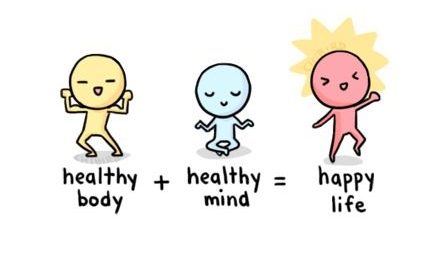There are many factors that can have a negative effect of your health, some of these factors include: loneliness, lack of social support, lack of human contact/touch, normative life transitions and non-normative life transitions.
Loneliness is often confused with alone. Being alone means that you are by yourself e.g. sitting alone, reading alone etc. and it is a choice, you can choose to be alone. Whereas loneliness is the felling that no matter how many people you are surrounded by or how many friends you have, you still feel lonely. Loneliness can have negative effects on your health as it can cause major depression, diminished immune function, promotes unhealthy behaviours, causes excessive reactions to stress and you are 4 times more likely to get sick.
Social support is having someone you can talk to about all your problems and the things that are bothering you, this can include your family, friends, colleagues, help lines (ChildLine), help groups (AA), teachers/teaching staff or you partner/husband/wife. When someone doesn’t have any social support, it can affect their health, it can lead to negative feelings about oneself, more at risk of stress, decreased life expectancy, longer recovery times from surgery, increase need for medication in some chronic illnesses and promotes negative health practices.
Human contact/touch is a vital part of our human nature, it conveys emotion and allows us to connect with those around us. Human touch also has many positive effects on our health such as: stronger hearts, lower blood pressure, decreased stress levels and reduced overall tension. However, if someone isn’t exposed to human contact then they do not receive these benefits thus reducing their health.
Normative life transitions, for example retirement or moving home, are life events that we can predict and expect. These kinds of life event can cause stress which negatively effects the person’s health, but these affects are not as great as those that come from non-normative life transitions. Non-normative life transitions, for example divorce or loss of a job, are life events that cannot be predicted and cause even greater negative effects on the person’s health. These effects include: neurotic impairment, coronary heart disease, cancer and many others.
Here are some factors that can help in supporting a healthy lifestyle:
- Religion and spirituality
- Family support
- Physical fitness
- Coping mechanisms
- Sense of control




